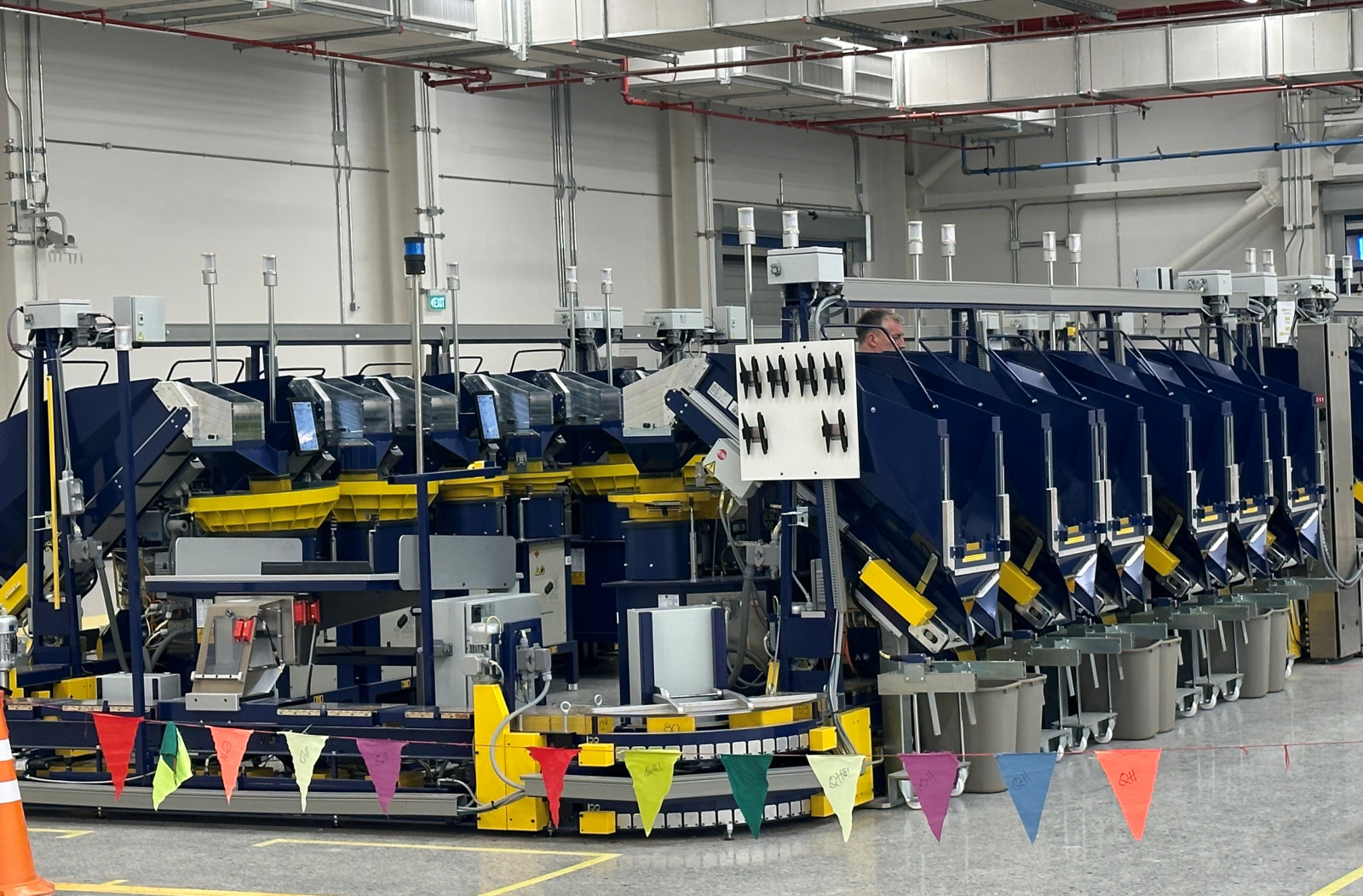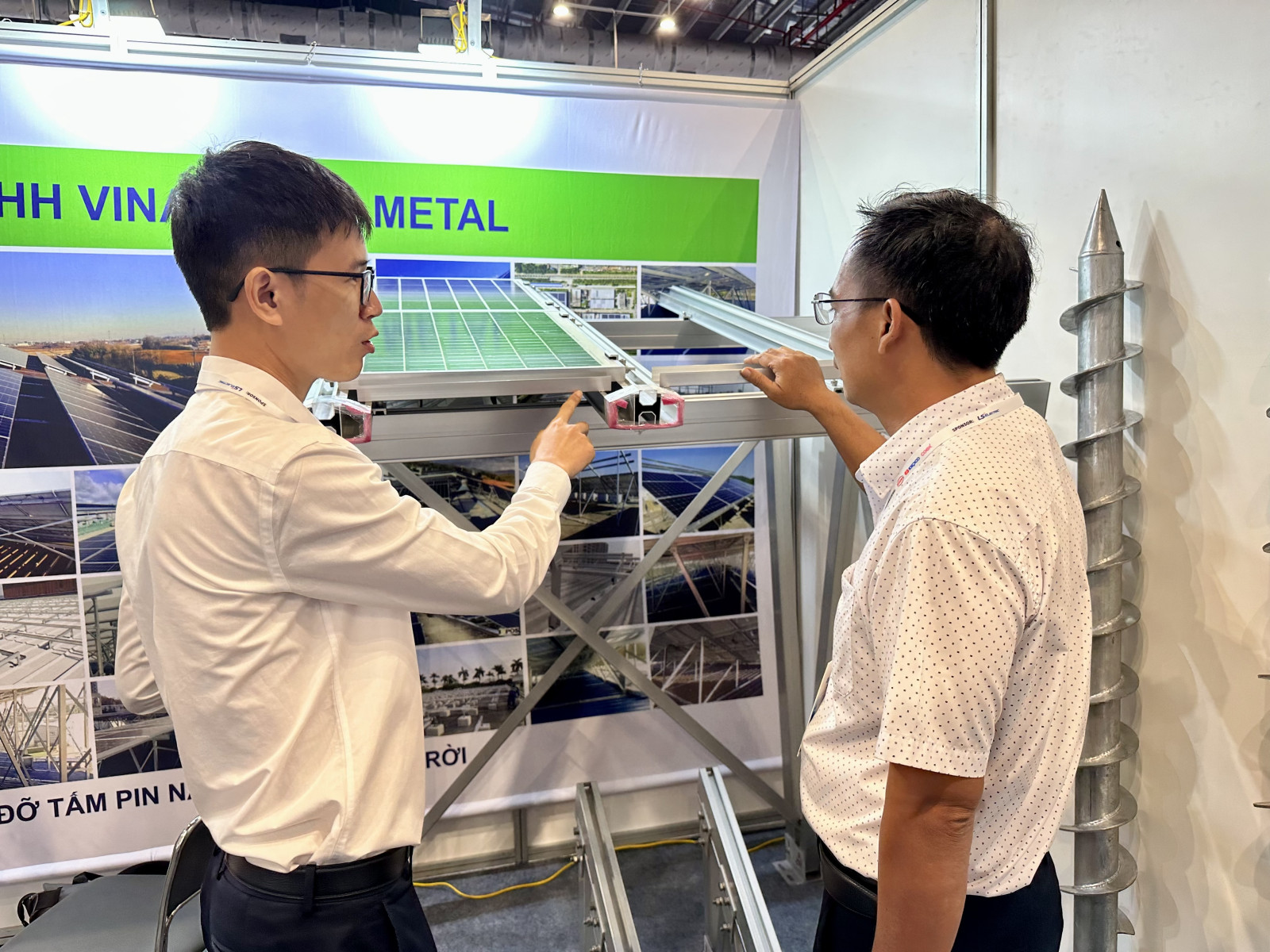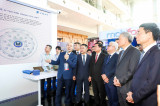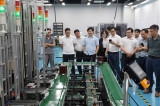Enterprises promote cooperation in green transformation
To enter the global supply chain, businesses are actively linking and collaborating to participate in the race for digital transformation and green transformation to meet customer demands. In this race, companies that get ahead will have more advantages.

Green production line is seen at Lego Vietnam
Promoting the model of symbiosis and interconnection.
Currently, many enterprises throughout the country are collaborating to implement the symbiotic model where businesses within the same or different industries cooperate to create an ecological circular economy to reduce waste and optimize resources, and the circular model where activities related to design, production, and services aim to extend the lifespan of materials and eliminate negative impacts on the environment. Wastewater and waste are possibly reused to bring about benefits such as reducing costs, being good for the environment, enhancing competitiveness, and providing additional opportunities to participate in the global supply chain.
|
”Implementing the EPR policy, we hope to create value not only for the business but also to contribute to the sustainable development of the community and society. This is an important step that affirms our responsibility towards a progressively developed Vietnamese society.” Mr. Phạm Van Nam, Director of the Senior Level Division and Director of Administration and Human Resources of Acecook Vietnam Joint Stock Company |
Recently, Acecook Vietnam Joint Stock Company and Kraft Vina Paper Co., Ltd. (Ben Cat city) organized a signing ceremony for cooperation in collecting and recycling paper packaging. Mr. Phạm Văn Nam, Director of the High-Level Division and Director of Administration and Human Resources at Acecook Vietnam Joint Stock Company, shared: “Acecook Vietnam always strives to carry out activities aimed at sustainable development in its production and management processes, contributing to the protection of natural resources and minimizing environmental impact. Implementing the EPR policy (Extended Producer Responsibility is an environmental policy approach whereby the responsibility of a producer for a product is extended to the disposal stage in the life cycle of that product) not only helps Acecook Vietnam comply with regulations but also demonstrates our strong commitment to environmental protection and waste reduction.”
According to Mr. Sompob Witworrasakul, General Director of Kraft Vina Co., Ltd., implementing the EPR policy will help businesses meet the growing demand of customers for environmentally friendly products. Therefore, EPR will open up opportunities for Vietnamese products to participate more deeply in the global value chain. Meanwhile, Mr. Nguyen Thanh Nghia, Chairman of the Board of Directors of Đại Thiên Lộc Joint Stock Company (TP. Thủ Dầu Một), stated: “To maintain our brand, we continue to invest in research, expand production scale, and improve quality to meet the increasing demands of the market. However, maintaining and developing a national brand requires continuous investment in research and development, improving production processes, and ensuring international standards to promote sustainable development. We hope to receive support from various levels and sectors to facilitate the green transition of enterprises.”
Enterprises offered the best conditions
The government has issued many policies to encourage technology conversion for the establishment of smart factories to promote green development. In addition to the central government's policies, Binh Duong province also creates many opportunities for businesses to participate in the green supply chain.

Many enterprises pay much attention to investments into solar energy for their needs
Mr. Jesper Hassellund Mikkelsen, Senior Vice President of the Asia Manufacturing Division of the Lego Group (Denmark), and General Director of the Lego Vietnam Factory (Vietnam - Singapore Industrial Park III), affirmed: "The factory is designed to use energy efficiently and not generate landfill waste, with over 12,400 rooftop solar panels installed in 2024. As production scale expands, we will need more renewable energy than the amount generated from the rooftop solar panel system. We need to explore different options to ensure a clean energy supply, such as participating in the DPPA mechanism which allows customers to use electricity with a commitment or target for clean energy, sustainable development to access and purchase directly a quantity of electricity from a renewable energy generation unit through a long-term bilateral contract with a price and contract duration agreed upon and unified. On this process, we need to learn and communicate with relevant partners in Vietnam.”
According to Ms. Nguyen Thanh Ha, Deputy Director of the Department of Industry and Trade, in order to participate in green production quickly and efficiently, enterprises and cooperatives must apply technology for digital transformation. The industry and trade sector is actively supporting small and medium-sized enterprises to invest in digital transformation and green production to facilitate business operations. On the part of enterprises, there needs to be proactive engagement with funding sources for digital transformation and green projects to keep pace with overall development.
Reported by Tieu My – Cam Tu – Translated by Vi Bao
 Binh Duong signs cooperation and investment agreement with South Korea’s Daewoo E&C
Binh Duong signs cooperation and investment agreement with South Korea’s Daewoo E&C
 Intensive actions of tax revenue to exceed in the year
Intensive actions of tax revenue to exceed in the year
 Businesses focus efforts on new development phase
Businesses focus efforts on new development phase
 High-Quality Human Resource Training Cooperation for Businesses
High-Quality Human Resource Training Cooperation for Businesses
 Visitors enjoy hundreds of images and artifacts at thematic exhibition “People's Armed Forces of Binh Duong province in fighting, building and defending the Fatherland”
Visitors enjoy hundreds of images and artifacts at thematic exhibition “People's Armed Forces of Binh Duong province in fighting, building and defending the Fatherland”
 Multiplying exemplary models of the "Excellent and Creative Labor" Emulation
Multiplying exemplary models of the "Excellent and Creative Labor" Emulation
 Logistics companies take advantage of opportunities to innovate and grow
Logistics companies take advantage of opportunities to innovate and grow
 Counterfeit, smuggled goods on e-commerce platforms: Current situation and solutions
Counterfeit, smuggled goods on e-commerce platforms: Current situation and solutions
 Coordination programs are guaranteed to be practical and effective
Coordination programs are guaranteed to be practical and effective
 ENTERPRISES LISTED IN THE GREEN BOOK: Role models on sustainable environmental protection
ENTERPRISES LISTED IN THE GREEN BOOK: Role models on sustainable environmental protection






